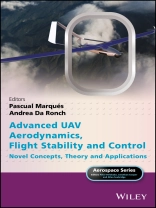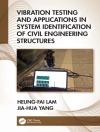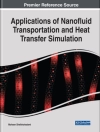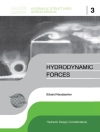Comprehensively covers emerging aerospace technologies
Advanced UAV aerodynamics, flight stability and control: Novel concepts, theory and applications presents emerging aerospace technologies in the rapidly growing field of unmanned aircraft engineering. Leading scientists, researchers and inventors describe the findings and innovations accomplished in current research programs and industry applications throughout the world. Topics included cover a wide range of new aerodynamics concepts and their applications for real world fixed-wing (airplanes), rotary wing (helicopter) and quad-rotor aircraft.
The book begins with two introductory chapters that address fundamental principles of aerodynamics and flight stability and form a knowledge base for the student of Aerospace Engineering. The book then covers aerodynamics of fixed wing, rotary wing and hybrid unmanned aircraft, before introducing aspects of aircraft flight stability and control.
Key features:
* Sound technical level and inclusion of high-quality experimental and numerical data.
* Direct application of the aerodynamic technologies and flight stability and control principles described in the book in the development of real-world novel unmanned aircraft concepts.
* Written by world-class academics, engineers, researchers and inventors from prestigious institutions and industry.
The book provides up-to-date information in the field of Aerospace Engineering for university students and lecturers, aerodynamics researchers, aerospace engineers, aircraft designers and manufacturers.
สารบัญ
List of Contributors xi
Series Preface xiii
Preface xv
Companion Website xvii
1 Advanced UAV Aerodynamics, Flight Stability and Control: An Introduction 1
Pascual Marqués
2 Aerodynamics of UAV Configurations 31
Pascual Marqués
Part I Novel Concepts in Unmanned Aircraft Aerodynamics 47
1.1 Fixed-wing (airplanes) 47
3 Aerodynamic Performance Analysis of Three Different Unmanned Re?]entry Vehicles 49
Giuseppe Pezzella and Antonio Viviani
4 Nonlinear Reduced?]order Aeroservoelastic Analysis of Very Flexible Aircraft 143
Nikolaos D. Tantaroudas and Andrea Da Ronch
5 Unmanned Aircraft Wind Tunnel Testing 181
R. Bardera Mora
6 Chord?]dominated Ground?]effect Aerodynamics of Fixed?]wing UAVs 201
Qiulin Qu and Ramesh K. Agarwal
1.2 Rotary?]wing (helicopter) 255
7 Dynamics Modelling and System Identification of Small Unmanned Helicopters 257
Cunjia Liu and Wen?]Hua Chen
8 Aerodynamic Derivative Calculation Using Radial Basis Function Neural Networks 283
Ranjan Ganguli
9 Helicopter BERP Tip: Literature Review of Helicopter Blade Shape Optimisation Methods 309
Catherine S. Johnson, Mark Woodgate and George N. Barakos
10 Framework for the Optimisation of a Helicopter Rotor Blade with an Approximate BERP Tip: Numerical Methods and Application 345
Catherine S. Johnson, Mark Woodgate and George N. Barakos
11 Active Blade Twist in Rotary UAVs using Smart Actuation 399
Pascual Marqués
1.3 Hybrid Aircraft 421
12 Hybrid Aircraft Aerodynamics and Aerodynamic Design Considerations of Hover?]to?]Dash Convertible UAVs 423
Ron Barrett
Part II Novel Concepts in Unmanned Aircraft Flight Stability and Control 447
2.1 Fixed-wing (airplanes) 447
13 Closed?]loop Active Flow Control for UAVs 449
Oksana Stalnov
14 Autonomous Gust Alleviation in UAVs 465
Ya Wang and Daniel J. Inman
15 Virtual Flight Simulation using Computational Fluid Dynamics 495
Ubaidullah Akram, Marco Cristofaro and Andrea Da Ronch
16 Flow Structure Modification Using Plasma Actuation for Enhanced UAV Flight Control 547
Antonio J. Conesa Torres
17 Constrained Motion Planning and Trajectory Optimization for Unmanned Aerial Vehicles 577
Seid H. Pourtakdoust and Jalal Karimi
18 Autonomous Space Navigation Using Nonlinear Filters with MEMS Technology 613
Seid H. Pourtakdoust and Maryam Kiani
19 Adaptive Fault?]tolerant Attitude Control for Spacecraft Under Loss of Actuator Effectiveness 645
Qinglei Hu, Bing Xiao, Bo Li and Youmin Zhang
2.2 Quad?]rotor Aircraft 667
20 Novel Concepts in Multi?]rotor VTOL UAV Dynamics and Stability 669
Emaid A. Abdul Retha
21 System Identification and Flight Control of an Unmanned Quadrotor 695
Wei Wei, Mark B. Tischler, Nicholas Schwartz and Kelly Cohen
Index 729
เกี่ยวกับผู้แต่ง
Dr. Pascual Marqués, President of Marques Aviation Ltd., UK holds an MPhil and a Ph D degree in Engineering Mechanics. At Marques Aviation, Dr. Marqués oversees the design, R&D, and manufacturing of the MA THOR unmanned aircraft series. His research interests lie in the fields of Aerodynamics at low Reynolds numbers and Flight Stability. His research projects involve the implementation of theoretical aerodynamics. Wing aerodynamic efficiency in UAVs is optimized by adjustment of wing planform and Oswald efficiency, incorporation of flow control devices, modification of tip vortex configuration, and application of optimized geometric and/or aerodynamic twist. Flight stability is enhanced using principles of aeroelasticity, adaptive wing technology, and automated flight control. Dr. Marqués is the Editor-in-Chief of the International Journal of Unmanned Systems Engineering, and Chair of the World Congress on Unmanned Systems Engineering and the International Aerospace Engineering Conference.
Dr. Andrea Da Ronch, University of Southampton, UK
Alongside the academic position at the University of Southampton, Dr Andrea Da Ronch is seconded to Airbus Operations Ltd through a Royal Academic of Engineering grant. He is also a visiting academic at Beihang University (Beijing, China) and at Pontif??cia Universidade Católica do Rio Grande do Sul (Porto Alegre, Brazil). His research interests are in CFD methods for aeroelasticity and flight dynamics, and in the development of nonlinear model reduction techniques for large computational models. The impact of his research activities has a significant international visibility within the aeroelastic and aircraft design communities, reflecting his key role in the development of a number of software tools. The initial involvement with the ‘Next generation Conceptual Aero-Structural Sizing’ (Neo CASS) has now been superseded by an active role in the development of the ‘Computerised Environment for Aircraft Synthesis and Integrated Optimisation Methods’ (CEASIOM) software, considered as one of the world’s most advanced tools for multi-fidelity integrated aircraft design.












